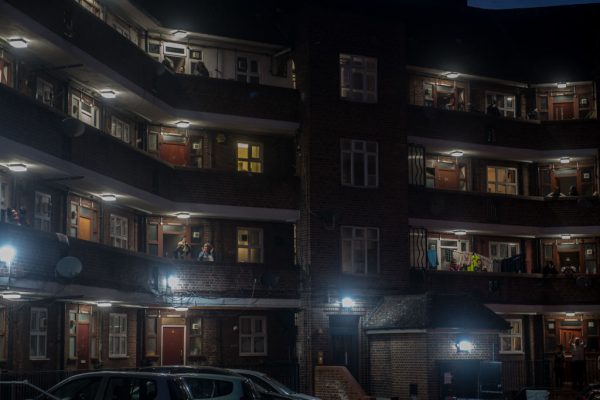Today, Oxfam is calling on politicians across Britain to make care count; both now, during the coronavirus outbreak, and in the future.
The COVID-19 pandemic has underlined the importance of care, something each of us depends on at some point in our life.
Oxfam works to tackle poverty everywhere, including in Britain. To do that, it’s impossible to ignore the link between poverty and care.
Even before COVID-19, too many carers – paid and unpaid – were in poverty. It wasn’t right then, and it certainly isn’t now.
Women deliver most care due to gendered social norms and are therefore particularly impacted. In Scotland, there are approximately 759,000 people aged over 16 providing some form of care, whether paid or unpaid – that’s approximately 1 in 6 of all adults, and as many as 59% are women.
As this pandemic unfolds, carers’ organisations and unions are rightly highlighting how carers are placing themselves and their families at enhanced risk of contracting the virus, sometimes without the equipment they need.
- A survey by Carers Scotland shows three-quarters of unpaid carers in Scotland are providing more care during this crisis, citing cuts in other sources of support. Some 79% of carers in Scotland also report spending more on food and other bills.
- One Parent Families Scotland is highlighting the particular challenges for single parents and their children as they depend on one income and can’t lean on the support of another adult to share childcare responsibilities.
- Meanwhile, The Alliance has highlighted the need for a rights-based, person-centred approach across the health and social care system, with people with long-term conditions, disabled people and unpaid carers at the heart.
- Scottish Care says a ‘new care normal’ will be needed, warning staffing levels in care homes may need to rise, while also highlighting the severe consequences of reduced emotional contact for groups of people, including those with dementia.
- Other like the STUC are calling for a new minimum wage of £10 an hour for all key workers to tackle in-work poverty.
Amid these important issues, it’s clear to Oxfam that the last thing any carer, or other key worker, needs is the added worry of poverty. We need to fix this injustice now, and for good.
Today we publish two Britain-wide reports, both strongly amplifying the voices and views of carers.
Make Care Count examines the pre-pandemic link between care, poverty and gender injustice, while our supplementary briefing, Care, Poverty and Coronavirus Across Britain, explores the additional impact of COVID-19.
We welcome action to cushion the impact on people’s incomes across the UK, but we must do more to ensure social security protects everyone from poverty, including carers. We must also ensure those employed to deliver care are receive at least the Real Living Wage, alongside fairer, more flexible contracts.
For carers in Scotland, there are good signs of policy commitment, including help for frontline organisations to continue to provide support, but this progress must now be built upon.
Before this crisis, Carer’s Allowance was topped-up in Scotland to bring the value up to that of Jobseeker’s Allowance. Amid new financial pressures, we must now consider whether that top-up remains sufficient.
For low income households with children, there remains a commitment to bring forward the new £10 per week Scottish Child Payment; we must guard against this being delayed and relieve pressures faced by these families right now.
For paid carers, the Scottish Government has fast-tracked payment of the Real Living Wage; we must now ensure this quickly benefits all paid carers, regardless of who they work for, and that means ensuring funding levels are sufficient.
More widely, the big increase in the Scottish Welfare Fund is also positive but will only protect people if they can access it quickly. Pre-COVID-19, 55% of people told us they wouldn’t know where to get emergency cash if they ran out of money for food.
So, there’s progress, but more to do – at UK level certainly, but here in Scotland too.
In the short-term we must protect carers from poverty, while permanently better valuing their work, sharing care more fairly and ensuring carers have the flexibility they need to juggle care with work and education.
Our polling showed four in five people in Scotland believed unpaid care work was not being valued highly enough. That was before COVID-19; before people took to their doorsteps to clap for key workers, including all carers.
We must build on this upsurge in solidarity and together support and care for those doing so much to protect so many; together we must ensure that all carers are protected from poverty.
By Jamie Livingstone, Head of Oxfam Scotland
